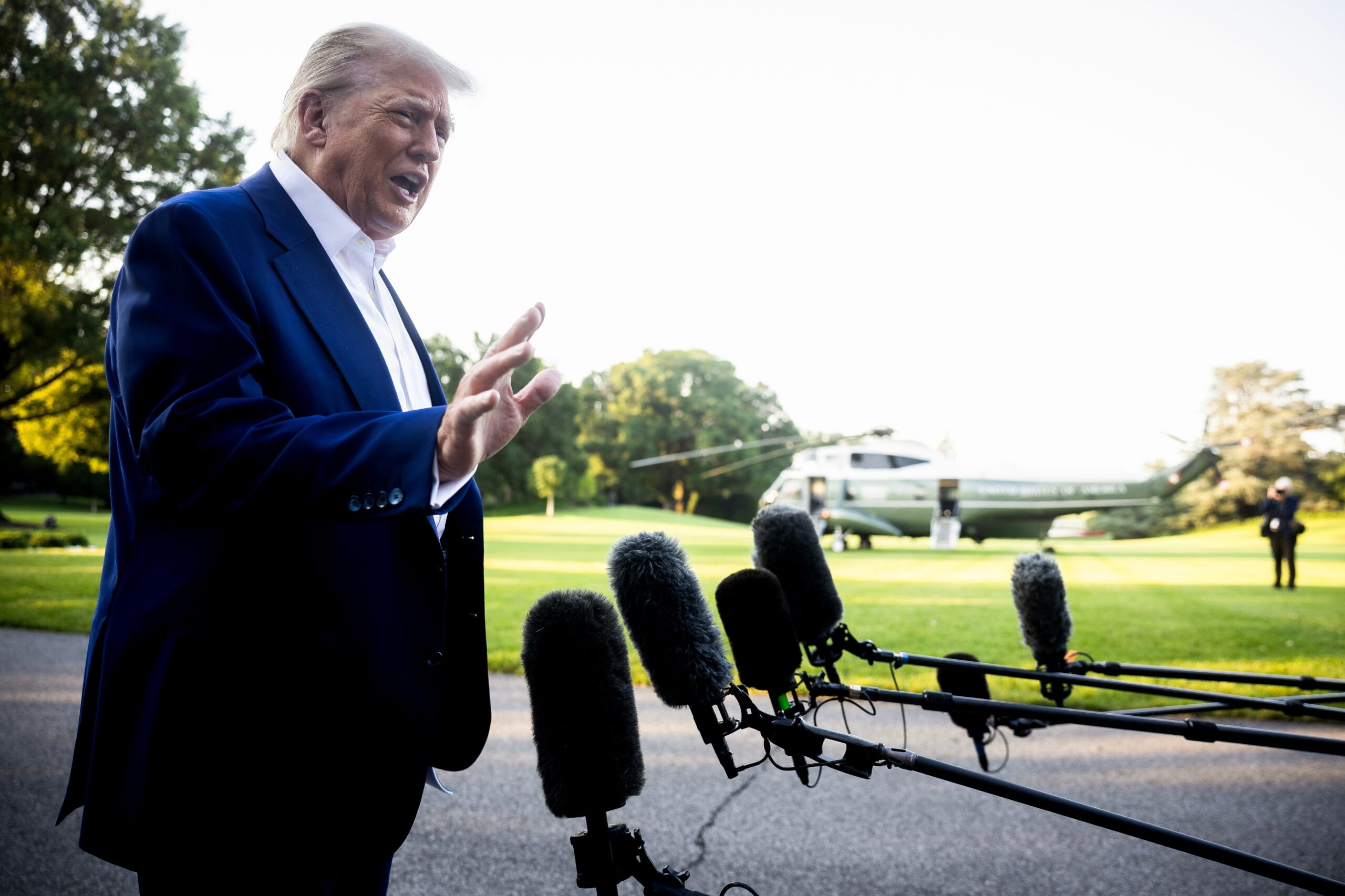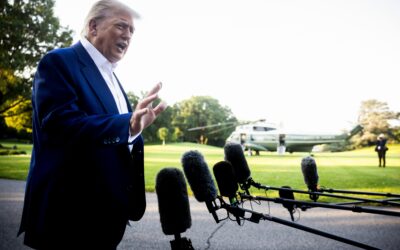Trump Targets Dissenting TV Channels, Suggests Licensing Threats
 US President Donald Trump speaks to members of the media on the South Lawn of the White House before boarding Marine One in Washington, DC, US, on Tuesday, June 24, 2025. Trump called on Israel to stop dropping bombs on Iran, calling it a "major violation" of a fragile ceasefire between the two countries he announced just hours ago. Photographer: Francis Chung/Politico/Bloomberg via Getty Images
US President Donald Trump speaks to members of the media on the South Lawn of the White House before boarding Marine One in Washington, DC, US, on Tuesday, June 24, 2025. Trump called on Israel to stop dropping bombs on Iran, calling it a "major violation" of a fragile ceasefire between the two countries he announced just hours ago. Photographer: Francis Chung/Politico/Bloomberg via Getty Images
President Donald Trump sparked controversy once again by suggesting that television networks critical of him “maybe” should lose their broadcasting licences. His comments, made during a recent interview, have reignited debate over press freedom and the role of media oversight in the United States.
Trump’s Criticism of the Media
Trump has long expressed frustration with mainstream media outlets, often labeling them as “fake news” or biased against him. In the latest remarks, he specifically targeted networks that provide coverage he considers unfair, implying that regulatory authorities could take action against them.
While Trump did not outline any formal mechanism for revoking licences, his comments drew immediate backlash from journalists, media organizations, and political commentators. Critics argue that such suggestions undermine the First Amendment, which guarantees freedom of the press in the U.S.
Media and Political Response
Several media watchdogs and politicians quickly condemned Trump’s statements. A spokesperson for the National Association of Broadcasters said, “Threatening networks with licence revocation because of editorial content is deeply concerning and contrary to American democratic principles.”
Legal experts also weighed in, noting that television licences are regulated by the Federal Communications Commission (FCC), which operates independently of political pressure. They emphasized that any attempt to remove a licence based solely on political criticism would face serious constitutional challenges.
Broader Implications
Trump’s remarks reflect ongoing tensions between political figures and the media in the U.S., highlighting the delicate balance between regulation and freedom of expression. The controversy is expected to fuel discussions around media bias, government oversight, and the role of journalists in holding leaders accountable.
As Trump continues to maintain a prominent role in American politics, his statements on media control are likely to remain a flashpoint in public discourse and political debates.

